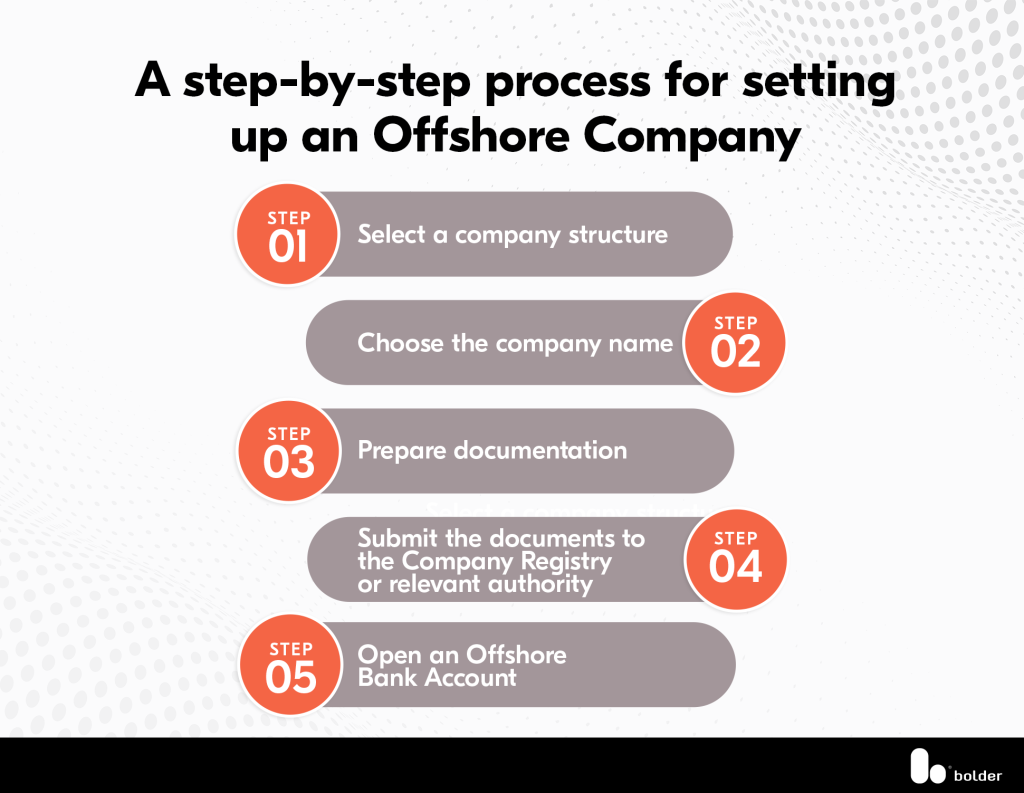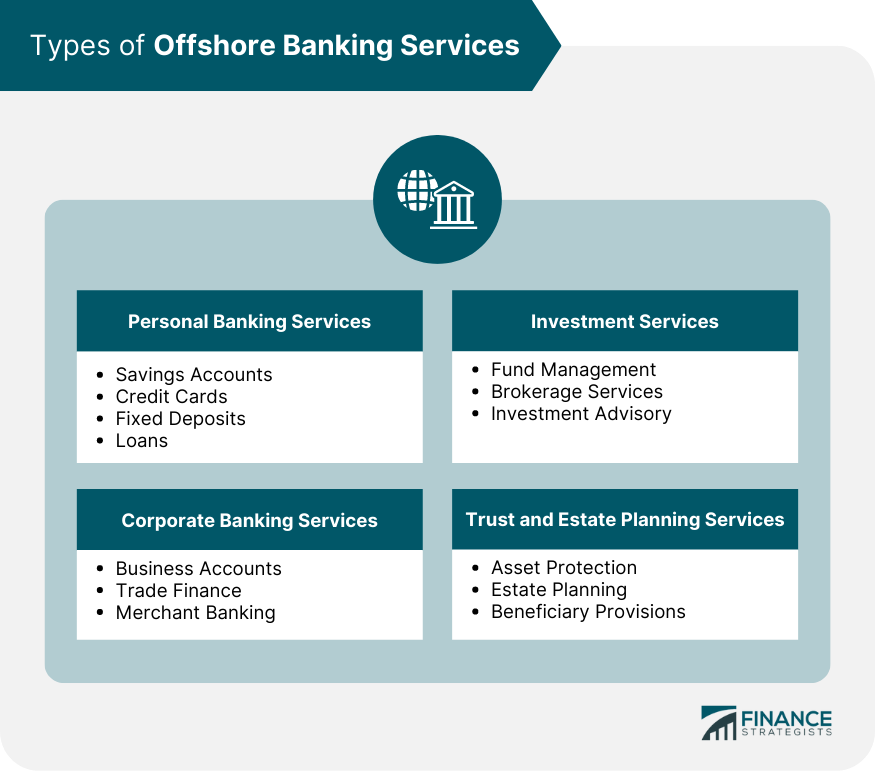Truth vs Fiction About Offshore Company Formations Debunked
Comprehending Offshore Company Formations: A Comprehensive Overview to the Process and Benefits
Offshore firm formations offer a strategic method for business owners seeking to enhance their company procedures. These entities commonly provide benefits such as tax obligation benefits, enhanced personal privacy, and robust property security. Nevertheless, understanding the details of picking a territory, the formation procedure, and conformity demands is essential. As the landscape of worldwide company develops, the ramifications of developing an offshore firm warrant cautious consideration. What actions should one take to browse this facility terrain?
What Is an Offshore Company?
An overseas company is an organization entity included outside the jurisdiction of its owners' house, usually in a country with positive regulative and tax settings. These business can serve different functions, including possession security, global trading, and wide range monitoring. They are generally developed in territories known as tax obligation havens, where business tax rates are reduced or missing, and privacy legislations are stringent.
Offshore firms may be possessed by individuals or other business entities and can operate in various markets, including consulting, finance, and ecommerce. While they supply particular benefits, the regulatory and lawful frameworks governing offshore firms differ considerably by jurisdiction. Company owner must browse these intricacies to ensure compliance with both local and worldwide laws. Comprehending the framework and feature of offshore firms is important for individuals considering this option for company operations or asset management.
Advantages of Creating an Offshore Business
While the choice to form an overseas firm might come from different tactical factors to consider, the potential advantages are engaging for several local business owner. One substantial advantage is tax optimization; many overseas territories supply beneficial tax prices and even tax obligation exceptions, permitting companies to retain more profits. Additionally, offshore business often give boosted personal privacy defense, protecting the identities of investors and supervisors from public scrutiny.


Business owners may find functional adaptability, as offshore territories frequently have fewer governing difficulties, allowing structured administration and governance. Jointly, these benefits make overseas business formations an eye-catching alternative for numerous seeking to expand their company horizons.
Selecting the Right Jurisdiction
Picking the ideal territory for an overseas company is an important action in taking full advantage of the benefits described earlier. Numerous factors affect this choice, consisting of tax obligation policies, corporate regulations, and the overall company environment. Territories such as the British Virgin Islands, Cayman Islands, and Singapore are frequently favored for their favorable tax obligation programs and robust lawful frameworks.
It is necessary to take right into account the particular needs of business, such as privacy requirements and governing compliance. Additionally, the simplicity of doing company, including the performance of company registration and financial facilities, plays a considerable function.
Prospective proprietors should additionally assess the political security and credibility of the chosen territory, as these elements can impact long-term success. Inevitably, comprehensive study and professional appointment are suggested to ensure alignment with the firm's objectives and to take advantage of the complete potential of offshore advantages.

The Offshore Company Development Process
The offshore business development process entails a series of essential actions that need cautious preparation and execution. Services or individuals should pick an appropriate territory that straightens with their objectives, considering aspects such as tax obligation benefits, personal privacy, and regulatory environment. Following this, the following action requires selecting the proper organization structure, such as an International Service Business (IBC) or Restricted Obligation Business (LLC)
When the framework is identified, essential files, consisting of a company plan, recognition, and evidence of address, must be prepared. Engaging a respectable local agent or provider can simplify this stage, making sure conformity with local policies. After sending the required paperwork to the relevant authorities, the formation procedure commonly culminates in the issuance of a certification of unification. This document establishes the company as a lawful entity, allowing it to conduct service worldwide.
Lawful Demands and Conformity
Understanding the lawful demands and compliance commitments is important for anybody looking to establish an offshore company. Each territory has details policies that need to be complied with, which can include company registration, obtaining essential licenses, and maintaining local addresses. Offshore Company Formations. It is crucial to select a registered representative who can assist in communication with local authorities and warranty conformity with ongoing reporting demands
Additionally, many jurisdictions require the submission of yearly monetary declarations, together with tax filings, also if the firm does not generate income. Directors and shareholders have to be recognized, with due diligence procedures commonly mandated to validate their identities. Failure to meet these lawful obligations can result in fines or the dissolution of the firm. Because of this, prospective offshore company owners need to consult with attorneys experienced in global service law to navigate these complexities properly and ensure complete conformity with all policies.
Tax Ramifications of Offshore Business
The tax obligation ramifications of overseas firms existing substantial benefits that draw in many entrepreneurs. Recognizing the linked conformity demands is important for maneuvering the complexities of international tax regulations. This section will certainly check out both the prospective benefits and the required commitments connected to overseas company structures.
Tax Obligation Benefits Summary
Overseas companies are typically viewed with uncertainty, they can offer significant tax benefits for individuals and businesses looking for to enhance their economic methods. One of the key advantages is the possibility for reduced business tax obligation rates, which can result in significant financial savings. Several overseas territories supply beneficial tax programs, including no or minimal tax on earnings, capital gains, and inheritance. In addition, offshore business can promote worldwide service operations by lowering tax obligations connected with cross-border transactions. This structure might likewise enable tax obligation deferral chances, permitting earnings to grow without instant taxes. Inevitably, these advantages add to improved monetary performance and property protection, making offshore companies an eye-catching alternative for smart capitalists and entrepreneurs.
Conformity Needs Discussed
Offshore firms might offer tax obligation benefits, yet they additionally feature a set of conformity demands that need to be very carefully browsed. These entities undergo particular reporting responsibilities, which vary considerably depending on the jurisdiction. Normally, offshore firms must preserve accurate economic records and send yearly financial declarations to adhere to local policies. Additionally, lots of territories need the disclosure of valuable possession to battle cash laundering and tax evasion. Failing to abide by these conformity actions can lead to severe fines, including penalties and possible loss of business licenses. Understanding the local tax obligation regulations and international contracts is essential, as they can affect tax obligations and total operational legitimacy. Involving with legal and financial professionals is recommended to ensure full conformity.
Keeping and Handling Your Offshore Business
Maintaining and taking care of an overseas company involves adhering to numerous continuous conformity requirements crucial for legal procedure. This includes diligent monetary record maintaining and an understanding of tax obligations pertinent to the firm's territory. Reliable administration not only assures regulatory conformity but likewise supports the company's economic health and wellness and durability.
Ongoing Conformity Requirements
Assuring recurring compliance is essential for any kind of click over here entity operating in the offshore market, as failure to satisfy governing requirements can result in considerable charges or perhaps dissolution of the firm. Offshore firms have to stick to regional laws, which might consist of annual declaring of economic Check This Out declarations, repayment of needed charges, and preserving a registered workplace address. Additionally, business are frequently needed to designate a regional agent or agent to assist in interaction with authorities. Regular updates on modifications in legislation or tax obligation demands are essential for compliance. Adherence to anti-money laundering (AML) and know-your-customer (KYC) policies is vital. By preserving arranged documents and remaining informed, overseas business can guarantee they stay compliant and alleviate risks linked with non-compliance.
Financial Record Maintaining
Efficient economic document maintaining is necessary for the successful monitoring of any type of overseas business. Preserving comprehensive and precise monetary records aids in tracking the company's performance, guaranteeing compliance with regional guidelines, and promoting educated decision-making. Firms ought to carry out organized processes for documenting earnings, expenditures, and purchases to develop openness and accountability. Making use of bookkeeping software can improve this procedure, permitting real-time financial analysis and reporting. Regularly reviewing financial statements helps determine trends, assess profitability, and manage capital properly. Moreover, it is crucial to securely store these records to secure sensitive information and assurance easy accessibility throughout audits or financial reviews. By prioritizing thorough monetary record maintaining, offshore firms can enhance operational efficiency and support lasting success.
Tax Commitments Summary
Understanding tax obligation responsibilities is essential for the proper monitoring of an offshore company, as it straight influences monetary efficiency and conformity. Offshore firms may undergo different tax laws depending on their territory, including company taxes, value-added tax obligations, and withholding tax obligations. It is necessary for entrepreneur to remain informed concerning their tax obligations, as failing to comply can cause charges and lawful problems. Furthermore, lots of offshore jurisdictions supply tax rewards, which can substantially profit companies if browsed appropriately. Involving a well-informed tax obligation consultant or accountant focusing on international tax obligation law can aid ensure that business meet their commitments while optimizing their tax obligation techniques. Eventually, persistent tax obligation monitoring contributes to the overall success and sustainability of an overseas entity.
Regularly Asked Inquiries
Can I Open Up a Savings Account for My Offshore Business Remotely?
The capability to open a savings account for an overseas company from another location depends upon the financial institution's policies and the jurisdiction's regulations. Several financial institutions provide remote services, however certain demands might differ significantly between institutions.
What Are the Expenses Associated With Creating an Offshore Firm?
The expenses included in forming an offshore business typically consist of registration fees, legal and consulting expenses, and recurring maintenance fees. These expenditures vary considerably based on territory, intricacy of the organization framework, and certain services called for.
Are There Limitations on Who Can Be a Shareholder?
Constraints on investors differ by jurisdiction. Some nations may enforce constraints based upon company, race, or residency kind - Offshore Company Formations. It's important for prospective capitalists to research certain policies appropriate to their selected offshore place
The length of time Does the Offshore Business Development Process Typically Take?
The overseas firm development procedure typically takes in between a few days to several weeks. Aspects affecting the timeline include jurisdiction requirements, document prep work, and responsiveness of relevant authorities involved in the enrollment process.
What Takes place if I Fail to Follow Neighborhood Regulations?
Failure to abide by local regulations can result in severe penalties, consisting of fines, lawful news activity, or loss of business licenses - Offshore Company Formations. It might additionally harm the company's track record and hinder future organization chances in the territory
An overseas firm is a company entity integrated outside the jurisdiction of its owners' residence, usually in a country with positive regulative and tax obligation environments. One substantial benefit is tax obligation optimization; numerous overseas jurisdictions provide positive tax obligation rates or also tax exceptions, allowing firms to preserve even more earnings. Overseas business are usually seen with suspicion, they can offer considerable tax obligation benefits for people and organizations looking for to enhance their monetary strategies. In addition, overseas firms can help with international business operations by reducing tax obligation liabilities connected with cross-border transactions. Offshore firms may be subject to numerous tax regulations depending on their territory, consisting of business taxes, value-added tax obligations, and withholding tax obligations.